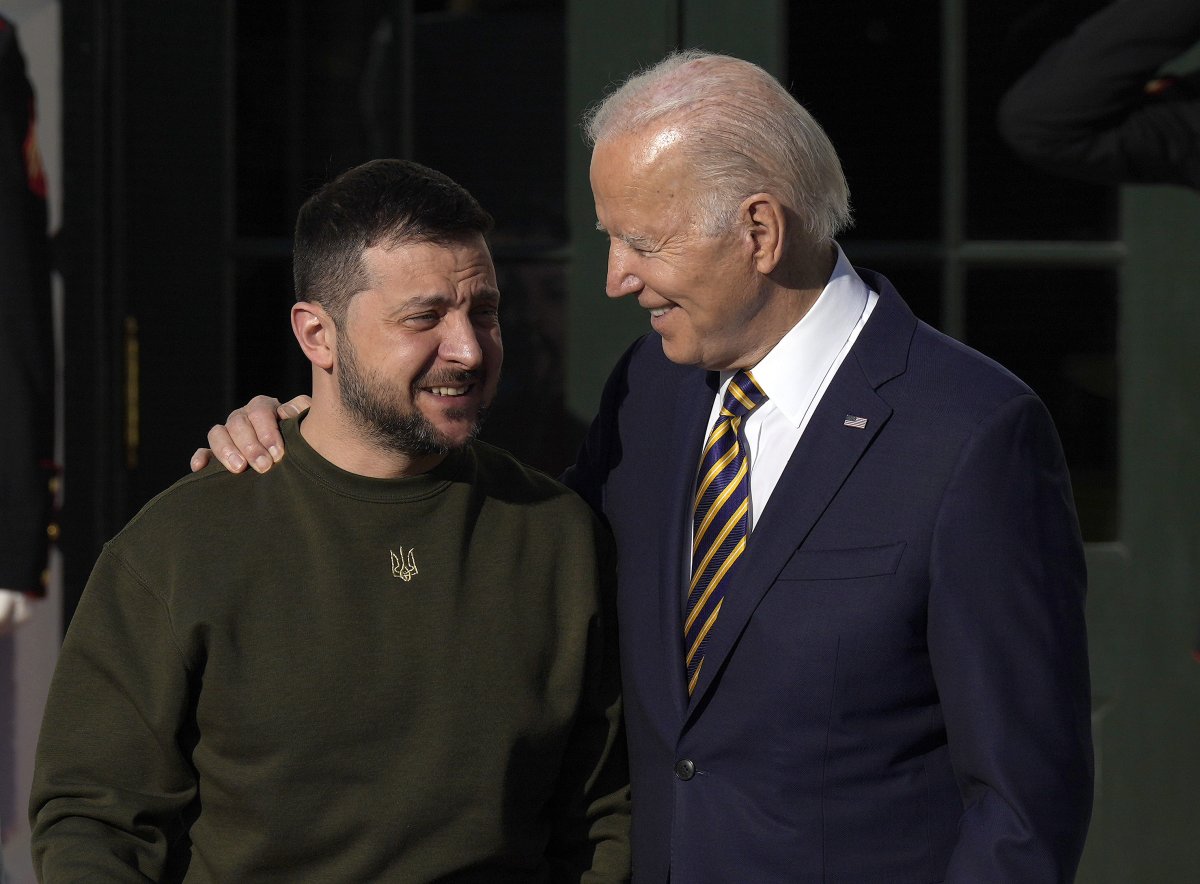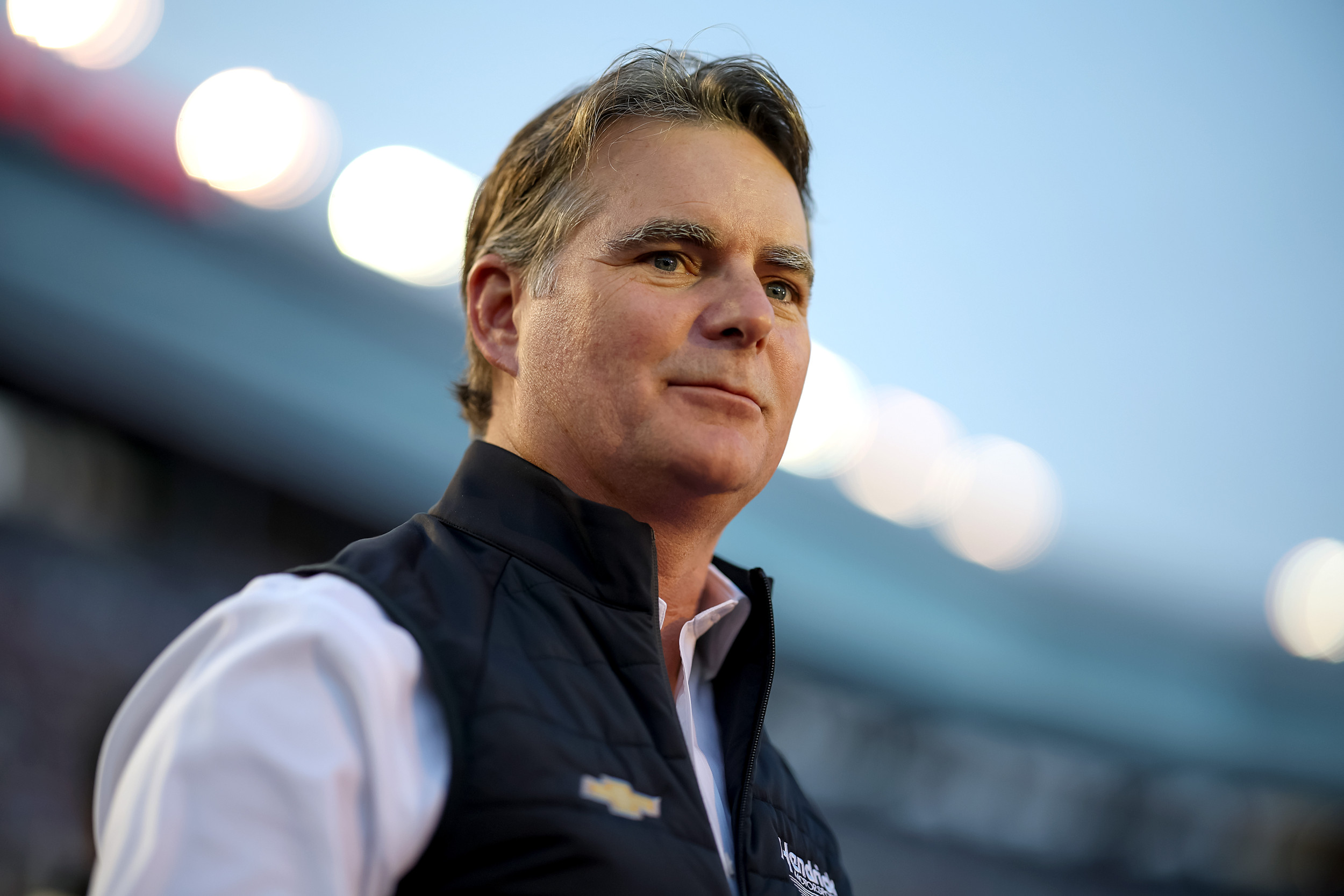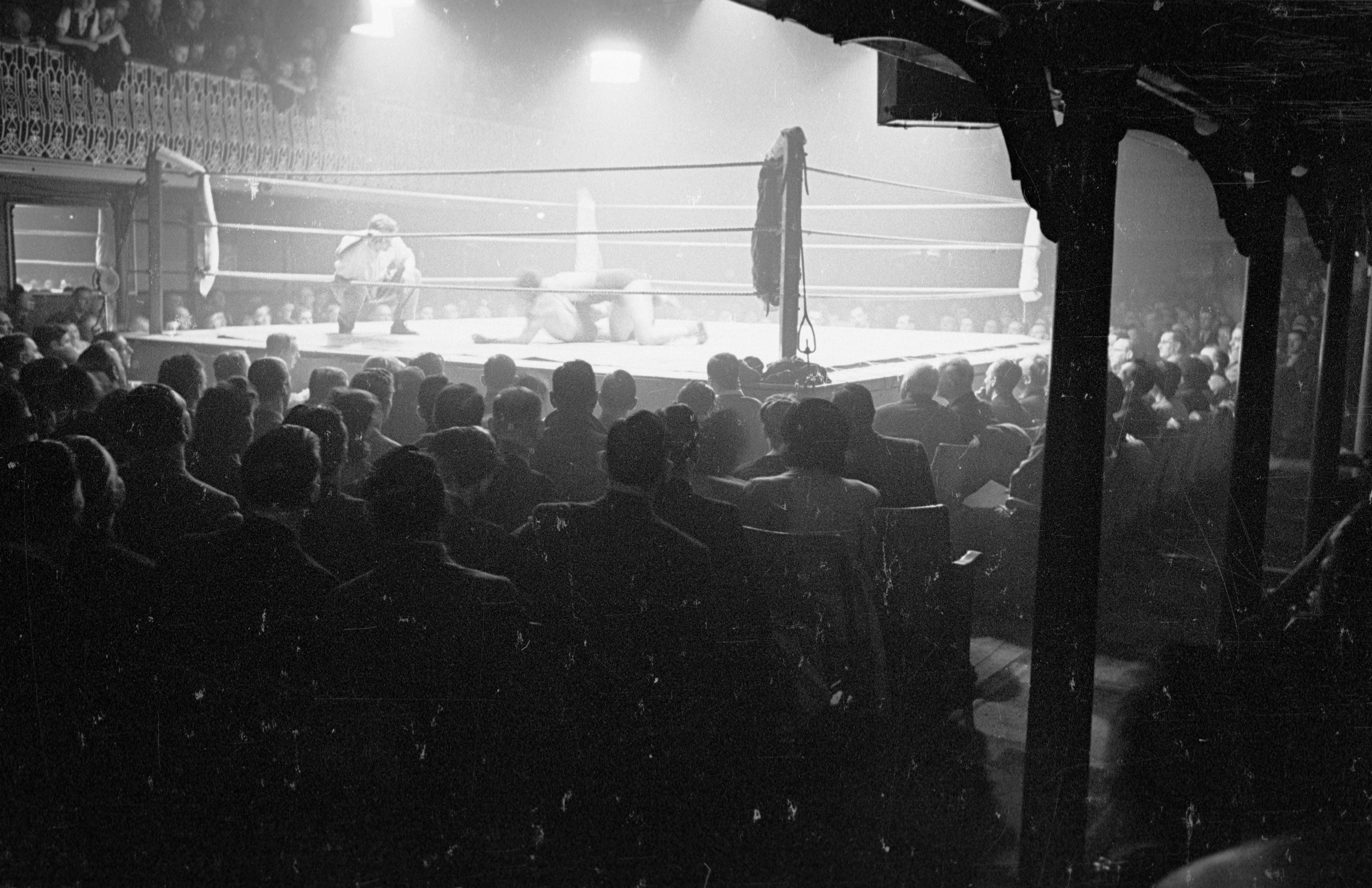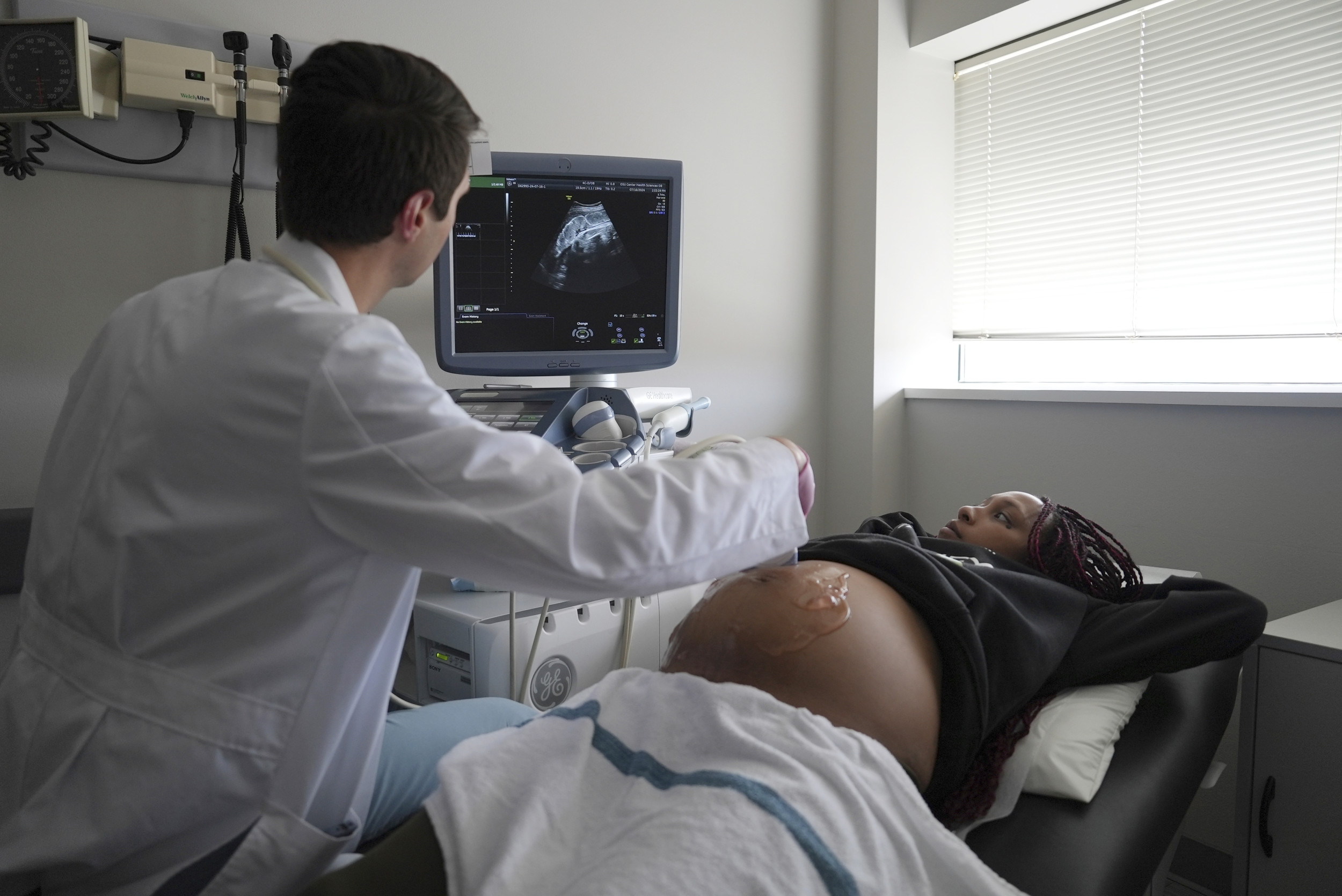Volodymyr Zelensky was fulsome in his praise for Donald Trump for an "impressive" election night but whether the Republican is as generous in the military assistance he gives the Ukrainian president, remains to be seen.
Trump's insistence he can end the war within a day may be light on detail but for Kyiv, it is heavy in implications that the 47th presidential administration may pressure Zelensky to accept an unpalatable deal with Russia's Vladimir Putin.
"This could take the form of withholding military support to encourage Ukraine to consider concessions, likely resulting in European leaders and Zelensky weighing the risk of diminished U.S. backing against the terms offered in negotiations," Edgar Bellow, professor of geopolitics at NEOMA Business School in Reims, France, told Newsweek.

Bellow said that given their close ties to Ukraine and stake in regional stability, European leaders may have to step up as primary mediators or peace brokers if the U.S. pushes for rapid negotiations.
"A Trump-led push could create friction if European leaders or Ukraine feel that any terms would be overly favorable to Russia or undermine Ukrainian sovereignty."
Zelensky and Trump have a tricky history predating the Republican's pet peeve of continued U.S. military aid. Their 2019 phone call led to impeachment proceedings against Trump, who was said to have pressured his Ukrainian counterpart to investigate his political rivals by withholding military aid.
Previous baggage was put aside in September when Zelensky met Trump in New York as part of a U.S. visit. There, Trump touted his good relationship with both the Ukrainian and Russian presidents only to later blame Zelensky and President Joe Biden for the war, without mentioning Putin at all.
"Trump's victory could bring considerable setbacks for Ukraine's fight for freedom," Svitlana Romanko, founder and director of Ukrainian group Razom We Stand, told Newsweek.
"If this new administration weakens U.S. support or further enables global addiction to Russian fossil fuels, it risks not only extending Russia's brutal war efforts but also entrenching a world reliant on the very resources funding this aggression."
Geopolitical analyst and Ukrainian military veteran (2014-2015) Viktor Kovalenko said he fears that in the months ahead of the inauguration, the Biden team may start harming Trump's chances of ending the war.
"The Democrats might not want Trump to succeed in Ukraine, so Biden's Ukrainian legacy won't be tainted," he told Newsweek. "I don't think that Trump's team fully realize that they face a tough, long, and risky path of bringing the war between Russia and Ukraine to some sort of a fair resolution."
Kovalenko said it was worth noting that during his first presidential term, Trump did more for Ukraine than his predecessor, Barack Obama. "At least, he [Trump] lifted the Obama administration's restriction on lethal weapons and sent anti-tank Javelins, which played a crucial role in halting Putin's second invasion."

"I think Zelensky must take advantage of Trump's expressed desire to end this war. Zelensky's team have to put their political preferences aside and start jointly brainstorming scenarios of a fair and just war resolution," he added.
Chris Alden, director of the London School of Economics think tank, LSE IDEAS, said that Trump's boast that he can help end the war should signal to Europe that this will be his leading foreign policy initiative. "However, the timing of any such negotiations needs to be considered," he told Newsweek.
"Trump won't be inaugurated until mid-January, will need to pick his cabinet and there are claims he wants a wholesale reworking on the U.S. bureaucracy—all very tall orders."
"Before sitting at the table, both parties also need to see that it is in their interests to negotiate rather than secure gains on the battlefield," Alden added. "It is not clear that Putin or Zelensky see the conflict that way at this point."
Matthew Savill, military sciences director at the London-based Royal United Services Institute (RUSI), said that a Trump victory "creates considerable uncertainty for both Ukraine and its other international partners."
"His desire for a deal—and probably a quick one—does not bode well for sustained U.S. support, especially with the current pressure on Ukraine," he told Newsweek. "Russia will see this as an incentive to keep on pressing home its advantage in numbers."
The Kremlin View
Before the election, Kremlin propagandists touted Trump as their preferred candidate, but there appears to have been a cautious response from Moscow to his victory, at least initially about the prospect of better ties with Washington roiled by the war Putin started.
Former President Dmitry Medvedev said on Telegram that "as a businessman to the core" Trump would balk at spending more money on Ukraine but however strongly he wants to end aid "the system is stronger."
Valentina Matviyenko, the speaker of Russia's upper house of parliament, the Federation Council, told state media, "I don't think there should be heightened expectations." And Deputy Leonid Slutsky, the head of the State Duma foreign affairs committee, noted how Trump's previous term ended "with a record number of anti-Russian sanctions."
Russian Deputy Sergey Mironov, leader of the party "A Just Russia" part of the systemic opposition that is sympathetic to Kremlin foreign policy, said ties between Moscow and Washington could only mend if Trump forced Ukraine "to capitulate," which of course would be unacceptable to Kyiv.
"Let's wait and see if the new U.S. president can fulfill his election promises and overcome the powerful anti-Russian lobby of the 'deep state' which he planned to fight," Mironov said in a statement to Newsweek on Wednesday. "Yes, Russia is skeptical."



















:quality(85):upscale()/2024/04/24/878/n/3019466/36c5693c662965c5d1ce91.72473705_.jpg)
 English (US) ·
English (US) ·